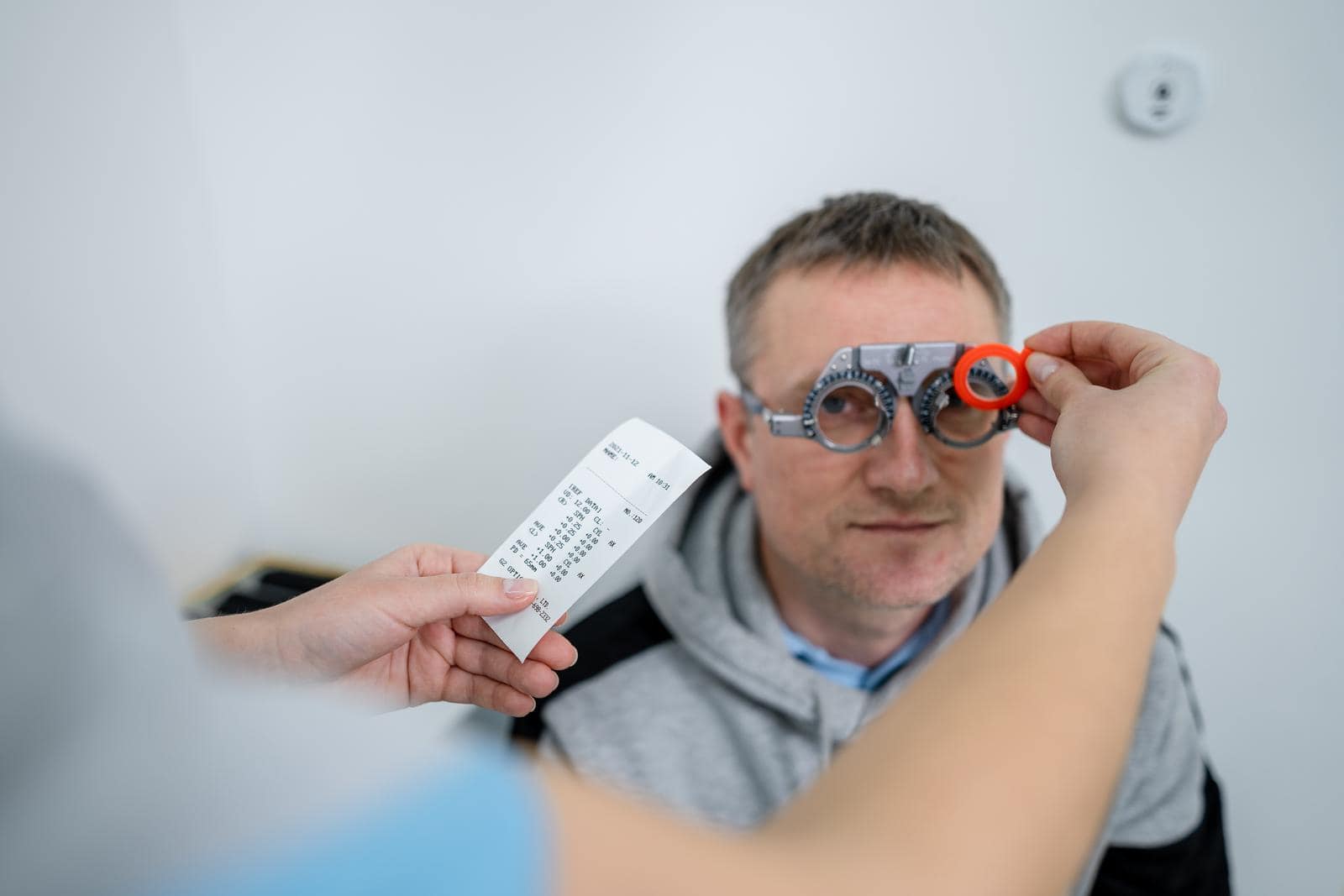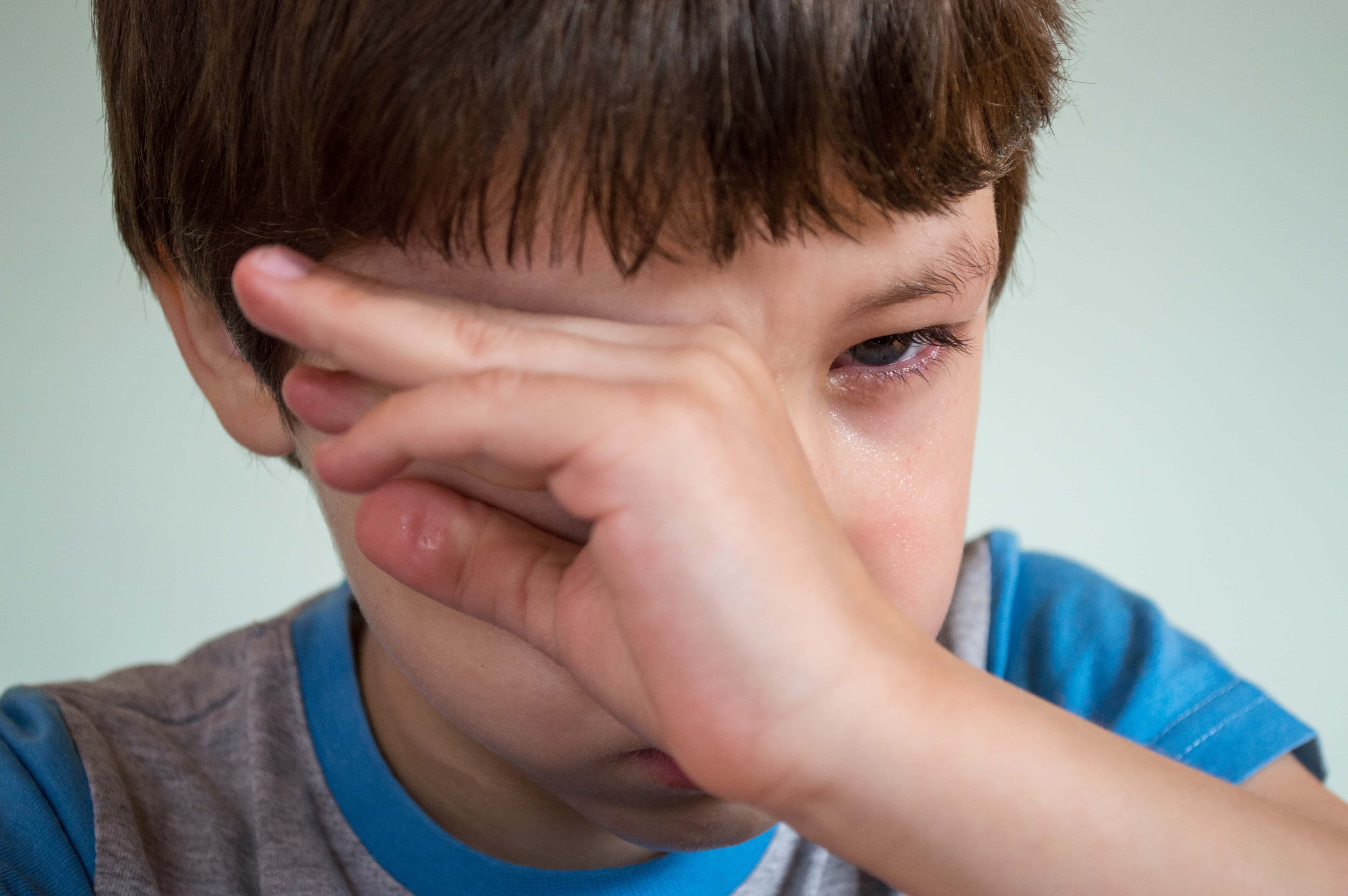Updated on May 1, 2024
How Often Should You Get Your Eyes Checked?


Vision Center is funded by our readers. We may earn commissions if you purchase something via one of our links.
Summary
- Regular eye exams will ensure healthy eyes and early detection of developing issues.
- On average, you should get your eyes checked every 1 to 2 years.
- Children, older adults, and those with underlying conditions should have regular eye exams.
- Factors affecting the frequency of exams include age, family medical history, pre-existing conditions, and lifestyle.
- The cost of an eye exam will vary depending on your age, location, type of exam, and whether or not you have insurance.
Why are Regular Eye Exams Important?
Regular eye exams ensure healthy eyes and early detection of developing issues. Many eye diseases may go unnoticed and continue to worsen over time.
Regular screening lets your eye doctor treat issues sooner and avoid preventable problems.
On average, you should get your eyes checked every 1 to 2 years. However, the frequency of eye exams may depend on your specific circumstances.
Children at risk of eye disease may need eye exams more frequently throughout childhood. If a child is not at risk, yearly eye exams are recommended until age 18.1
During eye exams, optometrists check for:
- Visual acuity. Clarity of your vision
- Eye alignment. Your eyes’ ability to focus effectively on an object
- Eye movement. Viability of your eye muscles
- Eye pressure. To determine the risk of glaucoma
- Underlying eye disease. These may include cataracts, macular degeneration, glaucoma, etc.

Factors Affecting the Frequency of Eye Exams
Below are common factors influencing the frequency of eye exams:
Age and Eye Exam Frequency
Your vision changes as you age. Because children's eyes are still developing, they need more frequent checkups than healthy adults.2 Infants and toddlers should have eye exams as early as 6 months after birth. Children between 3 and 18 should have their eyes examined once every 1 to 2 years.3
To maintain healthy vision, adults between 20 to 60 should have an exam every 2 to 4 years.
Because vision deteriorates in old age, those 65 or older should have annual eye exams to ensure proper eye health.4
If you're at risk of eye problems, you should have an eye exam at least once yearly, even if no symptoms are present.
Family History and Genetic Risk Factors

According to studies, vision problems can transfer from parents to children.5 For example, if both parents are nearsighted (myopia), the child will have a 25 to 50 percent chance of developing the condition. Common hereditary refractive errors include:
- Nearsightedness (myopia). The inability to focus on distant objects
- Farsightedness (hyperopia). The inability to focus on nearby objects
- Astigmatism. Imperfect curvature of the cornea or lens
- Lazy eye (amblyopia). Reduced vision in one eye caused by abnormal visual development early in life
- Presbyopia. Age-related farsightedness
If your family has a history of the above refractive errors, seeking regular eye checkups will keep your eyes healthy.
Existing Eye Conditions and Prescription Needs
People of all ages with pre-existing eye diseases require regular eye exams (every few months to every year). Common pre-existing conditions among Americans include:
- Glaucoma
- Age-related macular degeneration (AMD)
- Diabetic retinopathy
- Cataracts
- Amblyopia (lazy eye)
The frequency of visits may vary based on the type and severity of your condition.
If you have prescription glasses or contact lenses, eye doctors recommend an eye examination every 1 to 2 years for a prescription renewal. The eye examination will ensure any eye changes are accounted for in your new prescription.
Lifestyle and Occupational Factors
According to the National Library of Medicine, lifestyle exposures like smoking can affect eye health. This can cause age-related macular degeneration (AMD), cataracts, high blood pressure, and diabetic retinopathy.6
Other lifestyle causes may include:
- Alcohol use
- Poor diet
- Lack of exercise
- Direct sun exposure
On the other hand, occupational exposures such as extended screen time, dust, chemicals, extreme light, and thermal burns can cause long-term vision problems.
People pre-exposed to such environments will benefit from frequent eye exams for early diagnosis and treatment of developing issues.
Your eye doctor will also advise you on protective measures, such as wearing corrective lenses and critical lifestyle changes.
Yearly Eye Exam: Is It Necessary for Everyone?
A yearly eye exam is necessary if you have underlying eye health conditions, an active prescription, or a family history of vision issues. These scenarios require close monitoring to ensure your eye problems don't worsen.
For healthy eyes, doctors recommend a frequency based on age.
- Ages 3 to 19. Every 1 or 2 years.
- Ages 20 to 64. Every 2 to 4 years.
- Ages 65 and older. Every 1 to 2 years.
Children, older adults, and those who wear glasses or contacts may require yearly visits due to the high risk of vision changes.
Choosing the Right Eye Care Specialist
Most people don’t know the right eye care specialist to visit for their problems. Common eye specialists you can see include:
- Optician. A technician trained to design and fit your eyeglass lenses, frames, contact lenses, and other devices. They follow recommendations from an optometrist or ophthalmologist.
- Optometrist. Not considered a medical doctor, but can diagnose and treat eye diseases. They can also recommend appropriate protective eyewear.
- Ophthalmologists. A more specialized eye doctor who performs comprehensive eye exams and complex procedures, including eye surgery.7
Visit your optometrist or ophthalmologist for a complete eye exam. If your optometrist finds an issue that requires eye surgery, they will refer you to an ophthalmologist.
What to Expect at an Eye Exam
The doctor or staff member will ask about your personal and family history of eye disease in the eye exam room. They will then use different equipment to examine your eyes.
Standard tests during an eye exam include:
- Eye alignment test. To observe your eye movements as you focus on a moving target
- Cover test. To observe your eyes’ coordination to determine the presence and magnitude of ocular misalignment (strabismus)
- Dilated eye test. To check common eye problems such as AMD, diabetic retinopathy, and glaucoma8
- Visual acuity test. You'll read letters on a special chart to determine the clarity of your vision
- Depth perception test (Stereopsis). You'll view images through 3D glasses to determine depth perception
- Refraction testing. Your eye doctor will use a computerized refractor to determine your exact lens prescription
- Slit lamp (biomicroscope). To closely observe the different structures, looking for signs of certain eye conditions
- Pachymetry. To measure the thickness of your cornea (clear front part of the eye)
Other vision screenings may include visual field and color vision tests. Depending on the equipment used and the number of tests, the exam may last from half an hour to several hours.
After the comprehensive exam, your eye doctor will discuss the results with you before recommending a prescription.
Note: You’re legally entitled to a copy of your prescription. Keep it safe for future purchases.
Eye Exam Cost and Insurance Coverage
The cost of an eye exam will vary depending on your age, location, type of exam, and whether or not you have insurance.
The average cost without insurance is $200, but major retailers like Warby Parker offer eye exams at $95.
Other cheaper options include:
- Target Optical. About $70
- Costco Optical. $70 to $100
- Sam's Club. $50 to $100
- America's Best. $79.95 for two pairs of eyeglasses
Most vision insurance plans cover the cost of eye exams. However, you may or may not have to pay co-pays (typically between $10 and $40). Some providers may cover 100% of the cost.
When to Seek Immediate Eye Care
Some scenarios may require prompt medical assistance. Delayed or lack of treatment may worsen the problem. Seek emergency vision screening if you experience:
- Sudden loss of vision or vision changes
- Halos around lights
- Blurred vision
- Persistent eye strain
- Double vision (diplopia)
- Painful, irritated, or red eyes
- Presence of foreign object(s) in the eye(s)
- Eye infections, such as pink eye (conjunctivitis)
- Eye injuries, such as scratches on the eyes
- Eye infection
- Eye discharge (blood or pus)
In this article
9 sources cited
Updated on May 1, 2024
Updated on May 1, 2024
About Our Contributors
Vincent Ayaga is a medical researcher and seasoned content writer with a bachelor's degree in Medical Microbiology. Specializing in disease investigation, prevention, and control, Vincent is dedicated to raising awareness about visual problems and the latest evidence-based solutions in ophthalmology. He strongly believes in the transformative power of ophthalmic education through research to inform and educate those seeking knowledge in eye health.
Dr. Melody Huang is an optometrist and freelance health writer with a passion for educating people about eye health. With her unique blend of clinical expertise and writing skills, Dr. Huang seeks to guide individuals towards healthier and happier lives. Her interests extend to Eastern medicine and integrative healthcare approaches. Outside of work, she enjoys exploring new skincare products, experimenting with food recipes, and spending time with her adopted cats.

